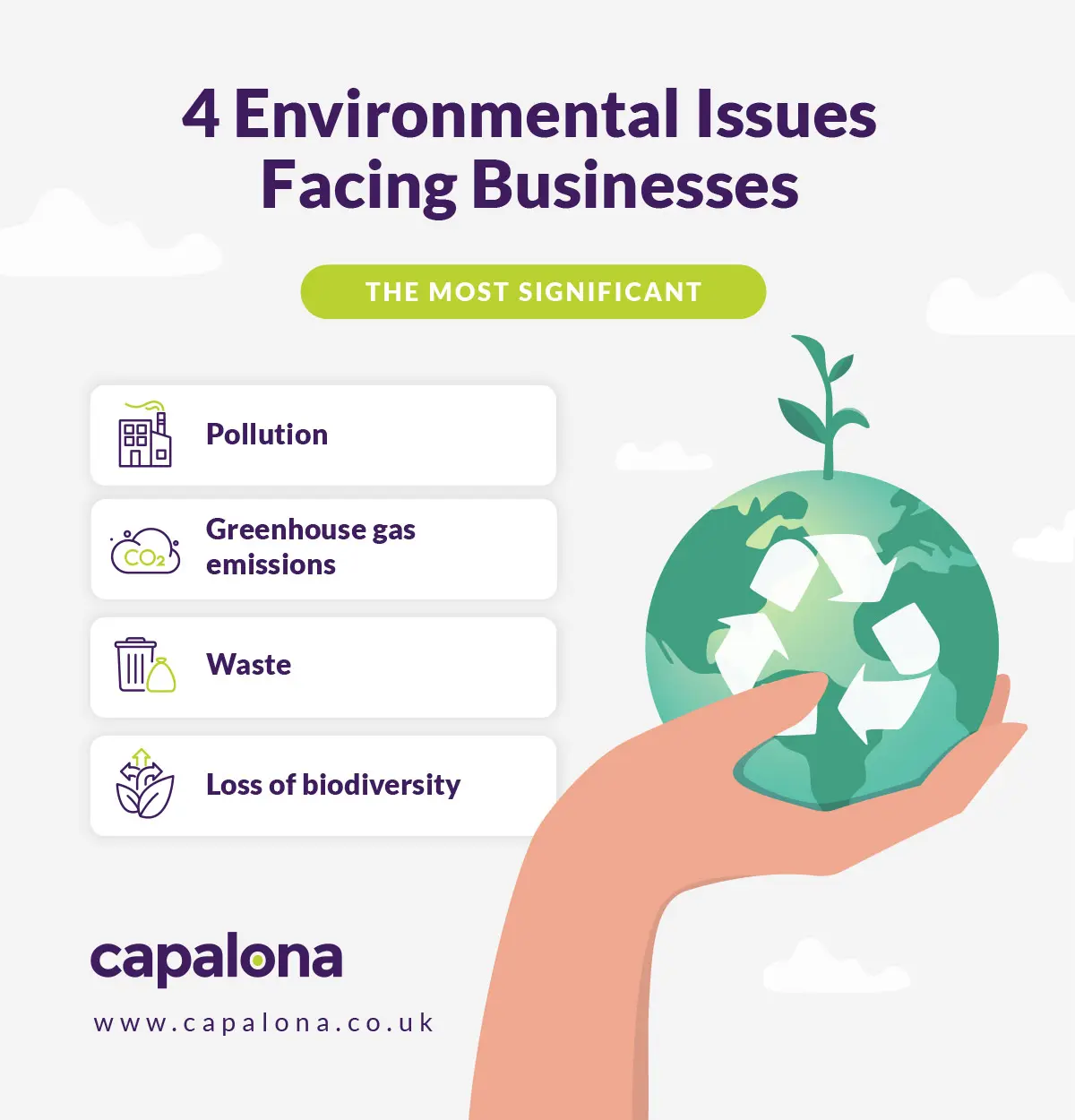Every business should be mindful of its impact on the environment, from manufacturing and distributing products to what happens to products that get thrown away; your business is contributing to greenhouse gas emissions. But by adopting eco-friendly practices and processes, you can drastically reduce your business’s carbon footprint and contribute to a better, more sustainable future.
Although greenhouse gas emissions from industry in the UK are much lower than in previous years, the industry sector was still responsible for 14% of greenhouse gas emissions in 2022, and landfill sites were responsible for 5% of all greenhouse gas emissions in the same year.
These statistics highlight the urgent need for businesses to take action and implement environmentally conscious strategies. By reducing our carbon footprint and minimising waste, we can contribute to combating global warming and save money through increased efficiency and resource conservation.
It seems to be high on many business agendas, with research suggesting that, as of 2023, 59% of companies used sustainable materials, such as recycled materials and lower-emitting products.

4 environmental issues facing businesses
Here are some of the most significant environmental issues facing businesses:
Pollution
Industrial processes release harmful chemicals, including carbon monoxide, hydrogen sulphide, and sulphur dioxide. These gases create air and water pollution, harming the ecosystem.
Greenhouse gas emissions
When businesses use energy or create emissions from transport or manufacturing, they contribute to greenhouse gas emissions. The only way to reduce this is by reducing their carbon footprint as a company.
Waste
Proper waste management is a significant issue facing UK businesses. Not only are we producing lots of waste, but it’s also costing businesses a lot of money—up to 5% of their annual turnover. On top of the per-tonne fee to local authorities, businesses are paying a landfill tax, too. By reducing your waste, you can cut down on these costs and reduce the amount of waste going to landfill sites.
Loss of biodiversity
Businesses are depleting natural resources, which is leading to a loss of biodiversity and habitat destruction. Companies can counteract this by implementing regenerative business practices, i.e., creating recyclable or biodegradable products.

How to reduce your business’s environmental impact
Knowing how businesses impact the environment and doing something about it are two very different things. Here, we’re sharing some tips on how you can reduce your business’s impact on the world around you.
- Create an environmental impact assessment. These assessments help you identify the environmental impact of certain projects or processes. This means you can make changes to your project before it harms the environment, ensuring compliance with environmental regulations.
- Optimise your industrial operations. By using more energy-efficient equipment or thermal oxidisers (which oxidise pollutants into carbon dioxide and water), you can reduce the amount of pollutants you emit into the atmosphere.
- Make sustainable practices a priority. According to a recent survey, 64% of businesses don’t have an environmental sustainability policy. Without a policy like this, the focus is not on reducing environmental impact.
- Implement responsible waste management strategies. Minimising waste throughout your product's lifecycle can dramatically reduce your business's carbon footprint and waste management costs.
- Look to reduce your carbon footprint where possible. Not sure how to reduce your carbon footprint? Here are nine ways to make your business more eco-friendly.
There are many benefits to going green
Although the main driver of eco-friendly processes should be sustainability, money talks. Going green can benefit you financially. From using renewable energy like solar panels to reducing your waste management bill — there’s a lot of money to save by going green.
Consumers are increasingly favouring businesses that embrace greener practices. Recent data suggests that 76% of consumers plan to purchase from retailers offering environmentally friendly products and services.
Committing to more sustainable business operations could give you a competitive advantage by appealing to an ever-growing eco-conscious consumer.
Use our free loan comparison tool to find and compare suitable lenders in seconds. Get your quote.




